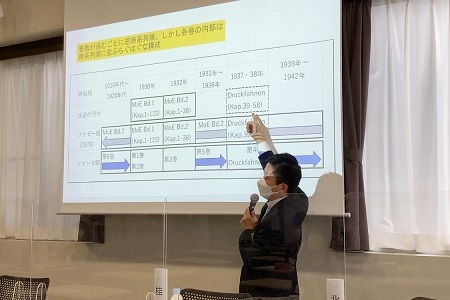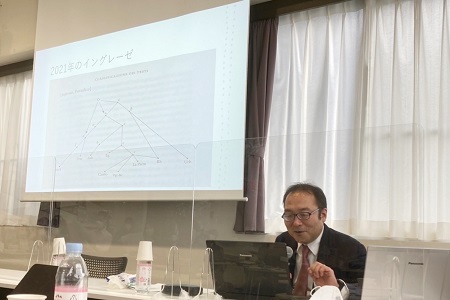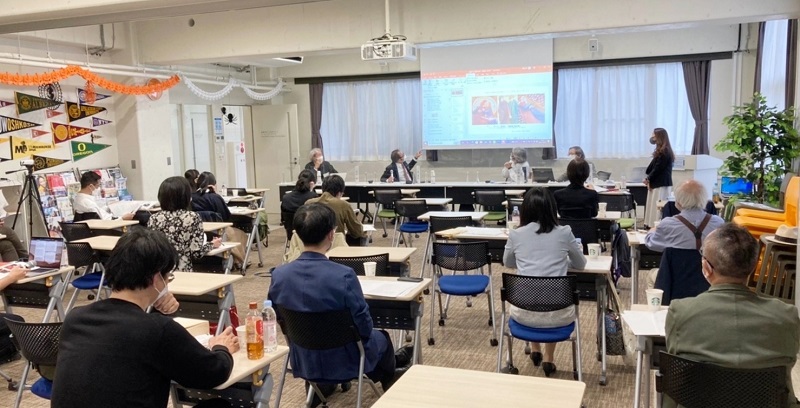

News
2022.11.09
On October 22nd, 2022 (Sat.), in the Global Lounge at the No.9 Building, our research center hosted the first seminar and the second symposium. On the day of the event, students and researchers from Seijo and various research institutions attended the events. The seminar and symposium provided a platform for in-depth discussions on the latest editing situations of works representing Austrian and Italian literature.

In the seminar “Editing of Robert Musil’s ‘The Man Without Qualities’”, Professor Reiko Kitajima (Professor Emeritus at Sophia University and Special Visiting Scholar at our center) and Professor Mototsugu Katsura (Professor at the Faculty of Humanities, Musashi University) were invited to give a lecture on the current status and issues of editing the unfinished novel “The Man Without Qualities” by Robert Musil.

Professor Kitajima spoke about the history of the posthumous editing of Robert Musil's manuscripts, ranging from the publication process of his works during his lifetime to the digital edition (Klagenfurt edition) published in the 21st century and the subsequent attempt to edit a new popular edition based on it (Fanta edition). Then, Professor Katsura discussed the tension between “scholarly rigour” and “readability” in the editing of Musil’s manuscripts, focusing on the draft manuscripts that correspond to the “sequel” of the second volume and the draft manuscripts of the “preliminary stage” of writing the work. This seminar demonstrated the complexity of editing Musil’s manuscripts for “The Man Without Qualities” and the possibilities and limitations of digital media-based editing and the subsequent new book edition.
Firstly, the lecture explained how the stemma, which shows the manuscript relationships, has been reconstructed from multiple manuscripts in each edition from the 1960s to the present day and how the text has been established based on that. Then, based on that foundation, the lecture discussed the validity of the latest edition's text of “Inferno, Canto V”, tracing back to 14th-century manuscripts and old commentaries from a bibliographic perspective, and explored how a different text from the traditional edition affects the interpretation of Francesca’s “Song of Love” and understanding of Francesca as a character.
We invited Professor Hiroaki Ito (Professor at the School of Letters, Senshu University, and Special Visiting Scholar at this research center) as a commentator, who gave detailed supplementary comments on the manuscript “collation” process known as the “Lachmann Method”. Additionally, guest commentator Professor Takami Matsuda (Professor at the Faculty of Letters, Keio University, and Special Visiting Scholar at this research center) also presented an introduction on the reception of Canto V of the ‘Divine Comedy’ in the 19th century, using paintings inspired by Paolo and Francesca as examples.
Furthermore, guest commentator Professor Arata Ide (Professor at the Faculty of Letters, Keio University, and Special Visiting Scholar at this research center) raised an important question regarding the editorial process. Through a comparison with Shakespearean plays, he questioned whether a pure original source could be attained through manuscript-based editing. During the Q&A session, various issues were discussed, including the relationship between establishing the text and interpreting or receiving it, as well as the position of the ‘Divine Comedy’ within Italy.

The Research Center for Textual Scholarship will continue to hold events related to textual scholarship regularly. We will announce these events on our university website. Please join us if you are interested.